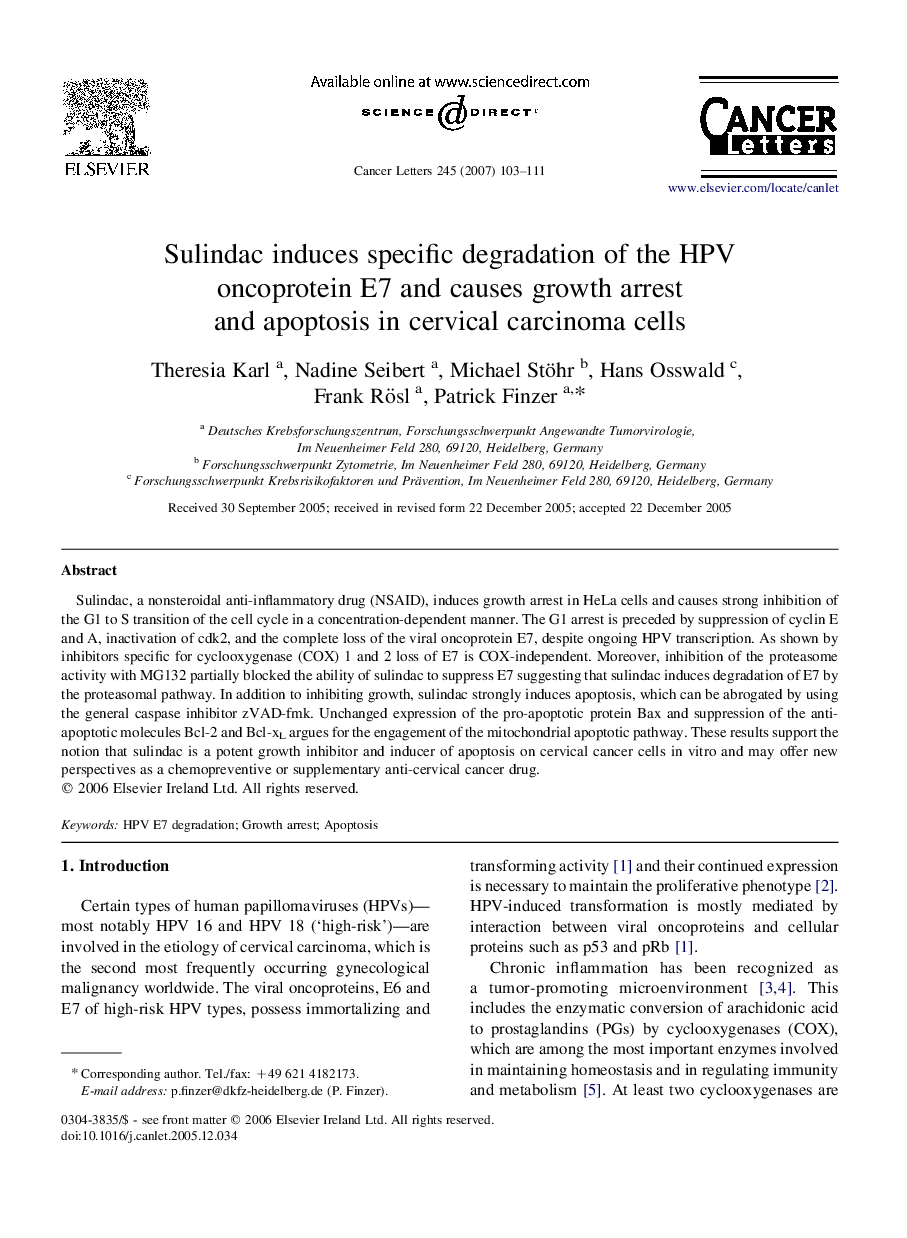| کد مقاله | کد نشریه | سال انتشار | مقاله انگلیسی | نسخه تمام متن |
|---|---|---|---|---|
| 2115434 | 1546703 | 2007 | 9 صفحه PDF | دانلود رایگان |

Sulindac, a nonsteroidal anti-inflammatory drug (NSAID), induces growth arrest in HeLa cells and causes strong inhibition of the G1 to S transition of the cell cycle in a concentration-dependent manner. The G1 arrest is preceded by suppression of cyclin E and A, inactivation of cdk2, and the complete loss of the viral oncoprotein E7, despite ongoing HPV transcription. As shown by inhibitors specific for cyclooxygenase (COX) 1 and 2 loss of E7 is COX-independent. Moreover, inhibition of the proteasome activity with MG132 partially blocked the ability of sulindac to suppress E7 suggesting that sulindac induces degradation of E7 by the proteasomal pathway. In addition to inhibiting growth, sulindac strongly induces apoptosis, which can be abrogated by using the general caspase inhibitor zVAD-fmk. Unchanged expression of the pro-apoptotic protein Bax and suppression of the anti-apoptotic molecules Bcl-2 and Bcl-xL argues for the engagement of the mitochondrial apoptotic pathway. These results support the notion that sulindac is a potent growth inhibitor and inducer of apoptosis on cervical cancer cells in vitro and may offer new perspectives as a chemopreventive or supplementary anti-cervical cancer drug.
Journal: Cancer Letters - Volume 245, Issues 1–2, 8 January 2007, Pages 103–111